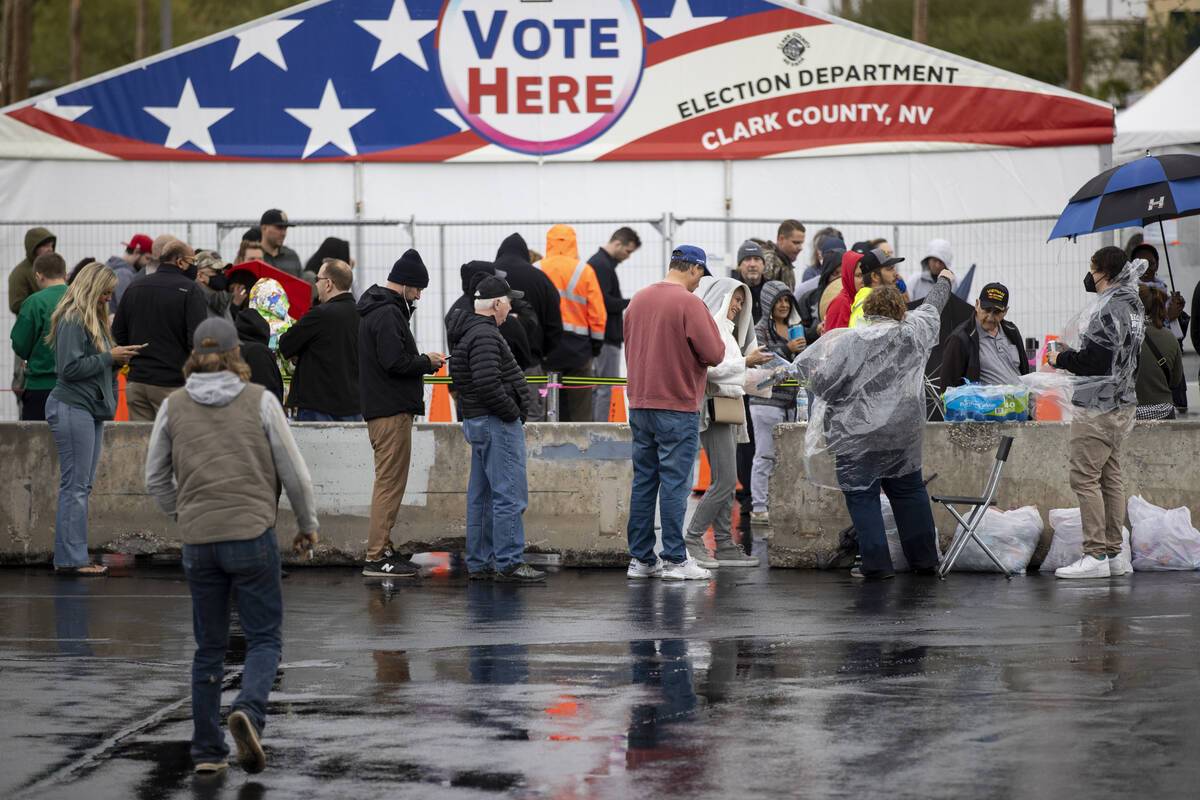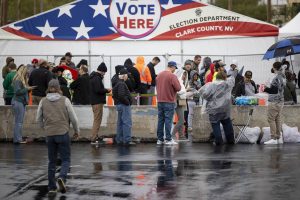
Swing-state court fights flare over voting rules before election
Zoe Tillman | (TNS) Bloomberg News
Judges are racing to resolve fights — many in swing states — over how Americans will cast ballots and tally results in the Nov. 5 presidential election as absentee and early voting is poised to start.
Nevada and Pennsylvania appeals courts are fast-tracking lawsuits over the fate of mailed ballots that contain errors or defects. A federal appeals court will hear arguments next week on whether Mississippi can count absentee ballots that arrive after Election Day. A trial is set for next month on vote certification rules in Georgia that Democrats warn could cause “chaos.”
Judges are also setting speedy schedules as new fights continue to hit the docket. Republican and Democratic national party organizations have filed lawsuits in recent weeks over registration, voting and ballot tally certification processes in Georgia, Michigan, Nevada and North Carolina.
While the U.S. Supreme Court has cautioned against last-minute intervention in elections by federal judges to avoid voter confusion, there is no firm cutoff date for challenges. And that guidance isn’t directed at state courts, where much of this year’s pre-election action is playing out.
In Pennsylvania, voting-rights lawyers are exploring ways to revive a fight over a state law that disqualifies absentee ballots because of problems with the date voters write on the envelope. A lower court blocked the law in August. In a 4-3 order on Sept. 13, the high court dismissed the case on a procedural issue because it didn’t name all 67 county boards of elections.
The dissenting justices said that the court had authority to hear the case regardless of any jurisdiction problem, writing that a “prompt and definitive ruling” was “of paramount public importance.”
The challengers argue thousands of votes in the swing state are at risk of not being counted based on a rule unrelated to whether a ballot arrives on time or a voter is eligible, citing invalidated ballots in past elections. The Republican National Committee, which intervened to defend the law, called the order a win to “secure commonsense mail ballot safeguards.” The Democratic National Committee jumped into the case to back the challengers.
Mimi McKenzie, legal director of the Philadelphia-based Public Interest Law Center, one of the groups that brought the case, said they believe they can get it back on track before Nov. 5.
“While it’s a setback in that it would be good to have a decision as soon as possible, the court most certainly did not weigh in on the underlying merits,” she said.
The Pennsylvania Supreme Court adopted an order in August speeding up timelines for cases related to the November contest. Other fights over absentee and provisional voting in the state are at various stages of appeals.
Elsewhere, dozens of election cases are pending, with several significant pre-November showdowns on the calendar.
Lawyers for the RNC and the DNC will square off this month before the 5th U.S. Circuit Court of Appeals in the Mississippi absentee ballot fight. Republican-leaning Mississippi isn’t a battleground, but the case is seen as a proxy for the GOP’s broader attack on post-election-day ballot counting and could become a vehicle for the U.S. Supreme Court to weigh in.
The Nevada Supreme Court will hear arguments in early October in a case brought by the RNC and Republican nominee Donald Trump’s campaign challenging the state’s counting of mailed ballots that arrive without a postmark shortly after Election Day. A lower court judge sided with the state in August and the high court agreed to an expedited schedule.
In Georgia, one of the newest cases is on a fast track to trial. The DNC filed a lawsuit over recent changes adopted by the state election board regarding how vote tallies are certified, arguing they’re designed to empower Trump allies at the county level to interfere with the results. The RNC intervened to back the board. Fulton County Superior Court Judge Robert McBurney scheduled an Oct. 1 bench trial, noting the challenged rules will affect how local officials statewide manage the “fast-approaching” election.
“Time is therefore of the essence,” he wrote.
___
©2024 Bloomberg L.P. Visit bloomberg.com. Distributed by Tribune Content Agency, LLC.


